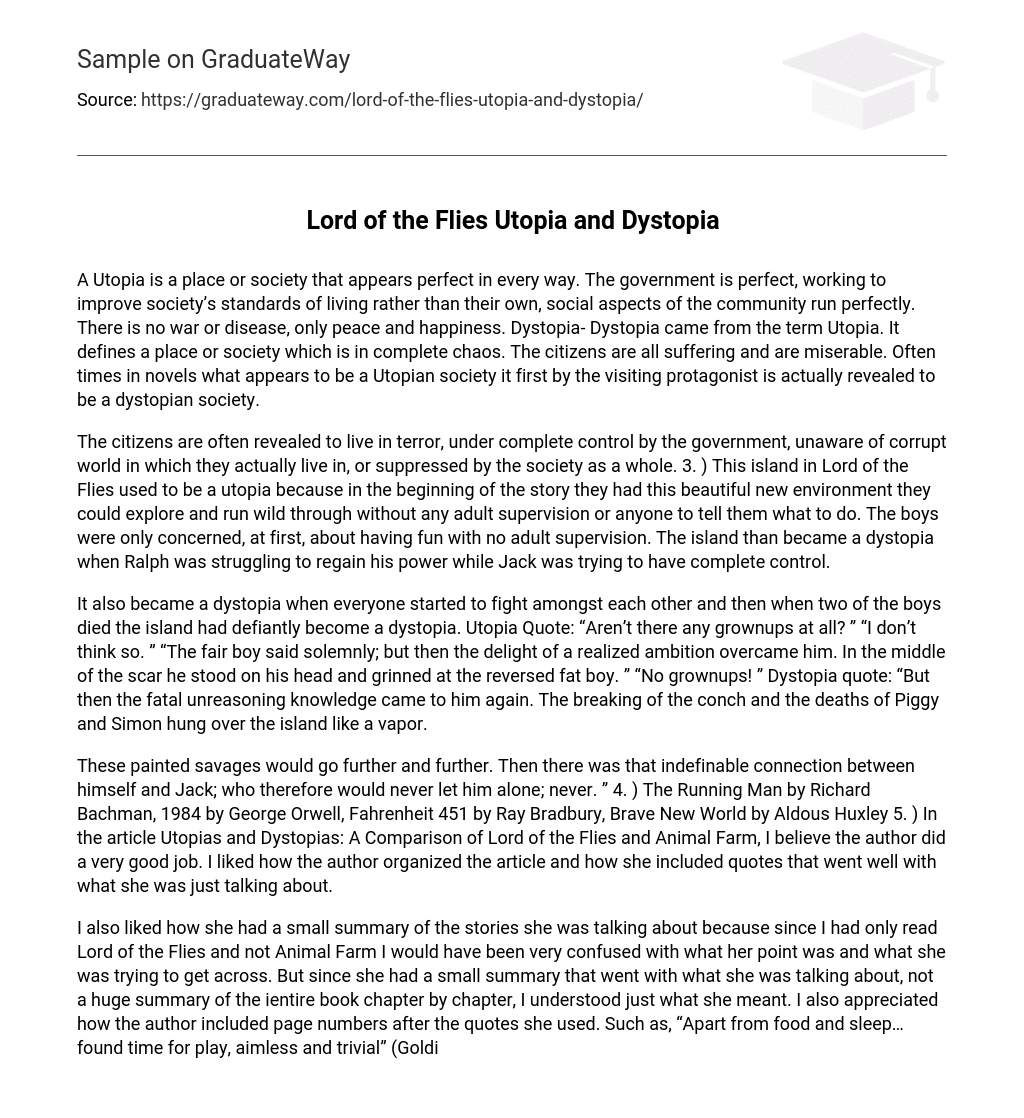A Utopia is a flawless place or society, where the government focuses on enhancing the living standards of the community rather than their personal interests. Social aspects are efficiently managed, ensuring peace and happiness without any presence of war or disease. Conversely, Dystopia originated from the idea of Utopia, representing a society or place characterized by absolute chaos. Its citizens endure immense suffering and are profoundly unhappy. Frequently, in literature, a seemingly perfect Utopian society is gradually unveiled as a dystopian one by the protagonist’s exploration.
The citizens live in terror, controlled by the government, unaware of the corrupt world they actually live in. They are also suppressed by society as a whole. In Lord of the Flies, this island was initially a utopia as the boys enjoyed the freedom of exploring and having fun without adult supervision. However, it later turned into a dystopia as Ralph struggled to regain power while Jack sought complete control.
It became a dystopia when fighting broke out among everyone, and the island truly descended into a dystopian state when two boys died. Regarding the utopia, one character asked if there were any adults present, to which another replied that they didn’t think so. The fair boy’s joy at the fulfillment of his ambition led him to stand on his head and taunt the overweight boy. Another quote illustrates the dystopian nature of the island, where one character experienced a fatal realization about the conch being broken and the deaths of Piggy and Simon hanging over the island like a dark cloud.
Jack persistently harasses these primitive individuals, who continue to progress and maintain an inexplicable bond with him. Notable dystopian novels include Richard Bachman’s The Running Man, George Orwell’s 1984, Ray Bradbury’s Fahrenheit 451, and Aldous Huxley’s Brave New World. Furthermore, the author of the article Utopias and Dystopias: A Comparison of Lord of the Flies and Animal Farm has done a commendable job in organizing the article and incorporating relevant quotes.
The author’s inclusion of a brief summary of the stories she discussed was appreciated. It was especially helpful for me since I had only read Lord of the Flies and not Animal Farm. Without this summary, her point and intended message would have been confusing. Her concise summaries were in perfect alignment with her discussion and helped me understand what she meant. Furthermore, I found it useful that the author provided page numbers after the quotes she referenced. For example, she mentioned, “Apart from food and sleep… found time for play, aimless and trivial” (Golding 49).





